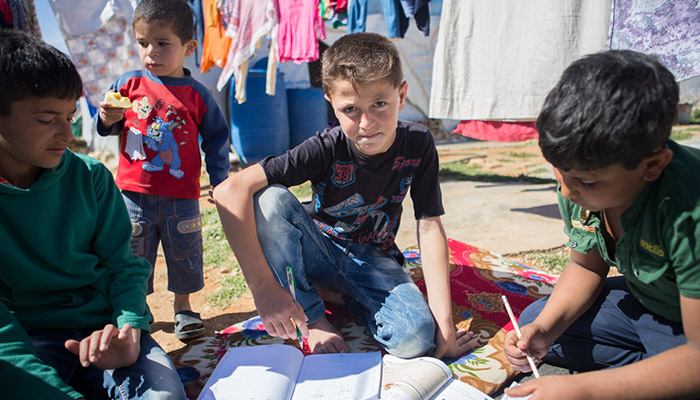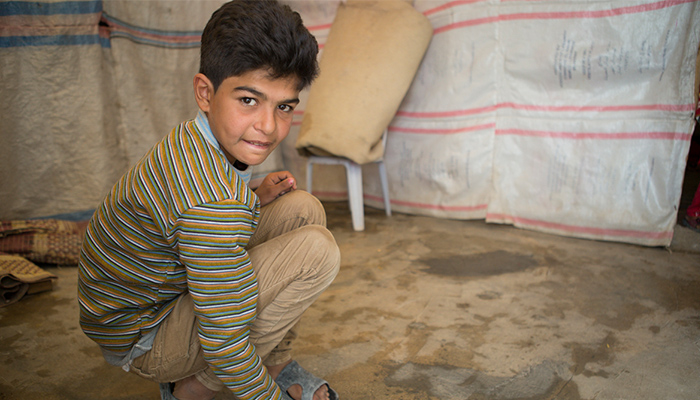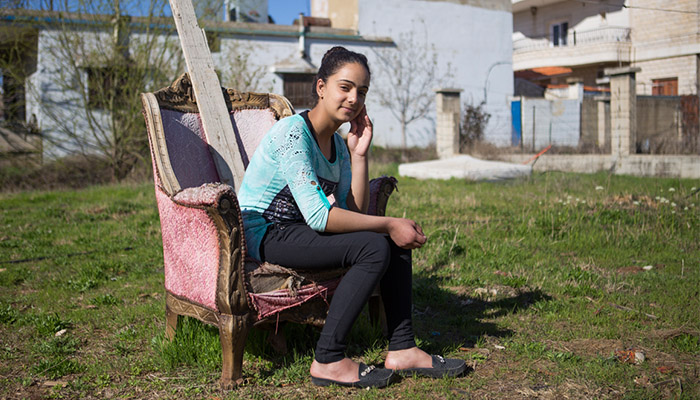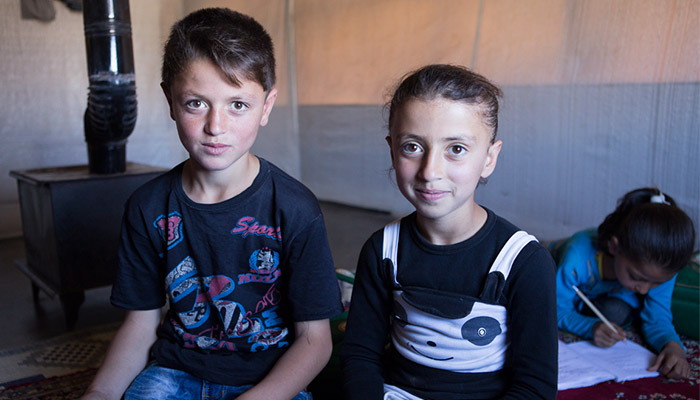Syria, 5 Years On

Photos by Tabitha Ross.
Here at the Global Business Coalition for Education, our members have made it part of our mission to tackle obstacles in providing education in emergencies and turn them into new opportunities to learn for the most vulnerable. From the inaugural Safe Schools Initiative response to the devastating kidnapping of the Chibok girls to recommending concrete solutions to reopening schools for the 5 million youth left out of school during the Ebola crisis — members have illustrated the power and promise of private sector support. The goal of this work is not only to create real, impactful change for those affected, but to also illustrate the business case for investing in and partnering for education.
Five years have passed since the conflict in Syria began. Millions of Syrian children have been forced from their homes and classrooms. A third of Syrian children have been born since the conflict began and have known nothing but war. That’s an estimated 3.7 million children. In response to their urgent need, the Coalition has expanded its operations in the Middle East with the hope of responding with education solutions for the countries hosting the largest numbers of refugees. The Coalition has also scaled up the business response to the Syrian refugee crisis, raising $75 million in financing and in-kind commitments from the private sector and partners in the effort to support the education of one million Syrian refugees in Lebanon, Jordan, and Turkey.
As we mark this tragic anniversary, get to know the stories, hopes, and dreams counting on us to rethink humanitarian response and move from traditional corporate social responsibility to corporate social results.

“I want to open a computer shop in Syria when I grow up. I started learning to use a computer at Sonbola a month ago, and I’m loving it. So I want to do this when I’m older.”
Khalil, 13, should be in grade 9 now, but he had to stop going to school when the crisis started. That’s five years without the opportunity and safety to learn. Instead of going to school, Khalil helps his mother at home and works in the fields. He has forgotten much of what he studied, but remembers how to read and write so he helps teach his five brothers and sisters when he can find a notebook and pen. Despite all of this he still has hope. With the support of Sonbola he’s learning about computers. That new passion and curiosity could be the start of a future industry disruptor’s career, but without education what will happen to all of that potential?

“When we came here I was out of school for a year. If you can’t go to school and get an education you can’t build a future life.”
Just 14 years old and Israa already knows what she wants to do with her life — to finish school and become a police office to help implement the law and rebuild a stable country. A refugee is out of their country for 17 years on average and the loss of economic potential for their nation is staggering. Supporting refugees with education and skills training while they are displaced helps empower them to not only lead healthier, safer lives, but prepares them to contribute to their host countries and hopefully the rebuilding process of their own communities as well. This process will need dedicated people like Israa to succeed.

“We were out for nearly four years. We didn’t the chance to go back until we came here to Lebanon and found places. We’ve been back about a year. I love school.”
Brother and sister Ayman, 12, and Batoul, 10, missed nearly four years of school. From the start of the conflict, their schools were targeted by the Syrian regime, according to their mother. One of the first things their family did when they came to Lebanon was look for school placements. When they finally returned to the classroom Ayman could barely remember what he had learned before the conflict. Batoul, who had only completed grade 1 before fleeing, had to start nearly from scratch. But that doesn’t stop them from dreaming of a future where they can go to school and become doctors. Ayman wants to be a surgeon while Batoul wants to be a paediatrician. There is a medical crisis in Syria now and when crisis ends medical staff will be needed at the forefront of the rebuilding process.
The children of Syria are full of potential. Private sector leadership is essential to ensuring that potential is fulfilled and a generation is not lost. That’s why part of the message businesses must send is this: these children are more than numbers. They are future leaders. Innovators. Customers. Investing in education in emergencies is an investment in the future. The question is how long will the world wait to invest?
These stories are possible to tell thanks to the work of Sonbola and Theirworld.
